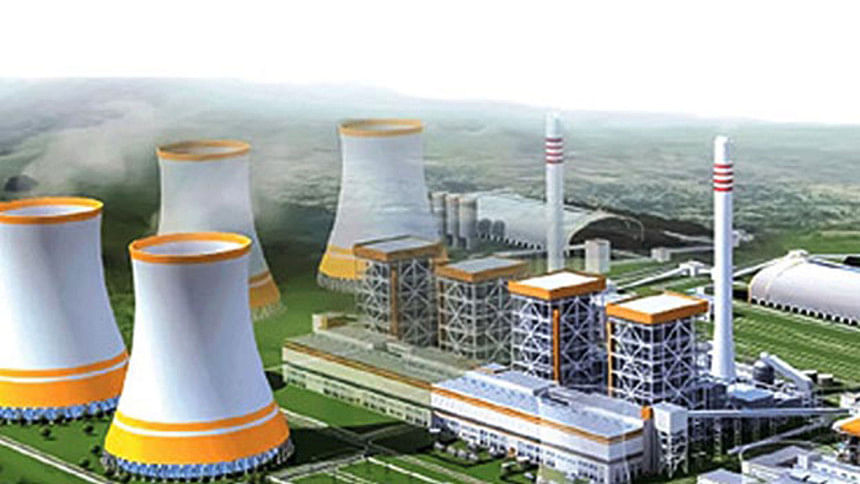Matarbari power plant generated only 15% of capacity in April

The Matarbari coal-fired power plant, one of the most expensive power infrastructure projects in the country, is generating only a fraction of its intended capacity, raising serious concerns over coal quality, maintenance failures, and weak project governance.
The 1,200-megawatt facility, located in the Moheshkhali upazila of Cox's Bazar, was expected to play a pivotal role in ensuring energy security. However, in April, the Power Development Board (PDB) could generate only 185 megawatts, around 15 percent of the plant's full potential.
"This is unfortunate. A plant of such capacity generating such a low output points to serious mismanagement," Planning Adviser Wahiduddin Mahmud said following a meeting of the Executive Committee of the National Economic Council (Ecnec) yesterday.
The meeting, held at the NEC conference room, was chaired by Chief Adviser Prof Muhammad Yunus.
The 1,200-megawatt facility, located in the Moheshkhali upazila of Cox's Bazar, was expected to play a pivotal role in ensuring energy security
According to Mahmud, the plant requires coal imports twice a week to remain operational.
However, for months, low-grade coal has been sourced from overseas, primarily Indonesia. This has contributed to the plant's underperformance.
Due to repeated efficiency issues, coal samples have been sent to Bangkok for testing. Yet, neither importers nor the government organisations involved have shown any urgency in retrieving the results of those tests, Mahmud lamented.
Aside from fuel quality, the plant's upkeep is also in question. Mahmud noted that poor maintenance has resulted in fly ash and residue accumulating in boilers, reducing efficiency and risking long-term structural damage.
Even more alarming is the absence of proper leadership and accountability. The former project director, appointed on a contractual basis, is reportedly absconding amid unresolved audit objections amounting to Tk 6,571 crore.
No action has yet been taken regarding the alleged objection.
"This is a systemic failure. Development isn't just about building large infrastructure — it's about ensuring they function properly," Mahmud said.
He further referred to recent media reports highlighting unusually high construction costs for a road in the Matarbari area, where allegations of record-breaking per-kilometre spending prompted the planning ministry to instruct the Implementation Monitoring and Evaluation Division to conduct strict monitoring.
Explaining the high costs, Mahmud said a significant portion of the road runs over uneven terrain, requiring numerous bridges and culverts. In fact, over half of the road's total length is composed of such structures, which contributed to increased expenses.
At yesterday's ECNEC meeting, nine development projects worth Tk 3,756 crore were approved.
Among them was the Gulshan-Banani-Baridhara lake development project (revised).
The project was originally endorsed in 2010 and scheduled to be completed by June 2013. According to the revised project plan, it will be completed by December 2026.
The cost of the project was revised upwards from Tk 410 crore to Tk 555 crore.
Mahmud said the implementing agency had been directed to construct walkways around the lake and complete the project within a year.
Mahmud also said two policies regarding the release of various information by the Bangladesh Bureau of Statistics (BBS) had been approved.
In line with those policies, the BBS will publish data without taking permission from the government.

 For all latest news, follow The Daily Star's Google News channel.
For all latest news, follow The Daily Star's Google News channel. 




Comments